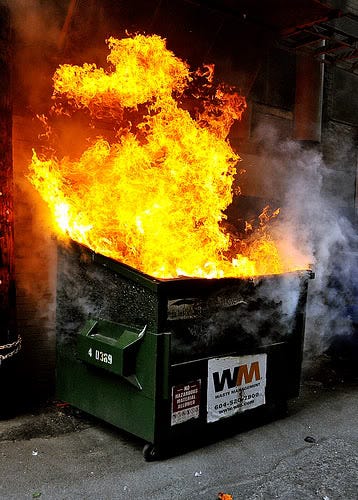It's not even Friday yet folks..
McMaster to Resign as National Security Adviser, and Will Be Replaced by John Bolton
Lt. Gen. H.R. McMaster was President Trump’s second national security adviser.Doug Mills/The New York Times
By Mark Landler, Julie Hirschfeld Davis and Peter Baker
March 22, 2018
WASHINGTON — Lt. Gen. H. R. McMaster, the battle-tested Army officer
tapped as President Trump’s national security adviser last year to stabilize a turbulent foreign policy operation, will resign and be replaced by John R. Bolton, a hard-line former United States ambassador to the United Nations, White House officials said Thursday.
General McMaster will retire from the military, the officials said. He has been discussing his departure with President Trump for several weeks, they said, but decided to speed up his departure, in part because questions about his status were casting a shadow over his conversations with foreign officials.
The officials also said that Mr. Trump wanted to fill out his national security team before his meeting with North Korea’s leader, Kim Jong-un. He
replaced Secretary of State Rex W. Tillerson with the C.I.A. director, Mike Pompeo, last week.
Officials emphasized that General McMaster’s departure was a mutual decision and amicable, with none of the recrimination that marked Mr. Tillerson’s exit. They said it was not related to
a leak on Tuesday of briefing materials for Mr. Trump’s phone call with President Vladimir V. Putin of Russia.
John Bolton, who will take office April 9, has met regularly with President Trump to discuss foreign policy.Alex Wong/Getty Images
Yet the president and the general, who had never met before Mr. Trump interviewed General McMaster for the post, had little chemistry from the start, and often clashed behind the scenes.
General McMaster’s serious, somber style and preference for order made him an uncomfortable fit with a president whose style is looser, and who has little patience for the detail and nuance of complex national security issues. They had differed on policy, with General McMaster cautioning against ripping up the nuclear deal with Iran without a strategy for what would come next, and tangling with Mr. Trump over the strategy for American forces in Afghanistan.
Their tensions seeped into public view in February, when General McMaster said at a security conference in Munich that the evidence of Russian interference in the 2016 presidential election was beyond dispute. The statement drew a swift rebuke from the president, who vented his anger on Twitter.
“General McMaster forgot to say that the results of the 2016 election were not impacted or changed by the Russians and that the only Collusion was between Russia and Crooked H, the DNC and the Dems,” Mr. Trump
wrote, using his campaign nickname for Hillary Clinton. “Remember the Dirty Dossier, Uranium, Speeches, Emails and the Podesta Company!”
pushing out Michael T. Flynn, his first national security adviser, for not being forthright about a conversation with
Russia’s ambassador at the time. (Mr. Flynn has since pleaded guilty of making a false statement to the F.B.I. and is cooperating with Robert S. Mueller III, the special counsel investigating Russia’s interference in the 2016 election.)
General McMaster carried out a
slow-rolling purge of hard-liners at the National Security Council who had been installed by Mr. Flynn and were allied ideologically with Stephen K. Bannon, Mr. Trump’s former chief strategist, earning the ire of conservatives who complained that his moves represented the foreign policy establishment reasserting itself over a president who had promised a different approach.
General McMaster’s position at the White House had been seen as
precarious for months, and he had become the target of a
concerted campaign by hard-line activists outside the administration who accused him of undermining the president’s agenda and pushed for his ouster, even creating a social media effort branded with a #FireMcMaster hashtag.
Last summer, Mr. Trump
balked at a plan General McMaster presented to bolster the presence of United States forces in Afghanistan, although the president
ultimately embraced a strategy that would require thousands more American troops.
General McMaster had been among the most hard-line administration officials in his approach to North Korea,
publiclyraising the specter of a “preventive war” against the North. He was among those who expressed concerns about
Mr. Trump’s abrupt decision this month to meet Kim Jong-un.


